
The following article is written by Rudam Azad, a Baluch activist for the national independence of Baluchistan.
Introduction
Balochistan remained under British rule from 1839 to 1947. In 1947, the Parliament of the United Kingdom announced the Indian Independence Act that ended British rule in India, and partitioned British India into two new independent dominions: India and Pakistan. However, the Act marked the beginning of Pakistan’s hegemony over Balochistan, despite its dreams of independence.
Soon after the partition of India, Pakistan’s Punjabi-dominated army immediately conducted raids at the residence of the ruler of Balochistan, Khan Mir Ahmed Yar Khan Ahmedzai (commonly referred to as “Ahmed Yar Khan,” and “Khan of Kalat”). Consequently, the army forced Yar Khan to sign the annexation of Balochistan to Pakistan. Yet, since the two parliament houses of Balochistan (the House of Lords and House of Commons) of the time opposed the annexation and there is no official ceremonial evidence of the signing, 40 million Balochs consider the merging of Balochistan with Pakistan to be an act of foreign aggression by the Pakistani army.
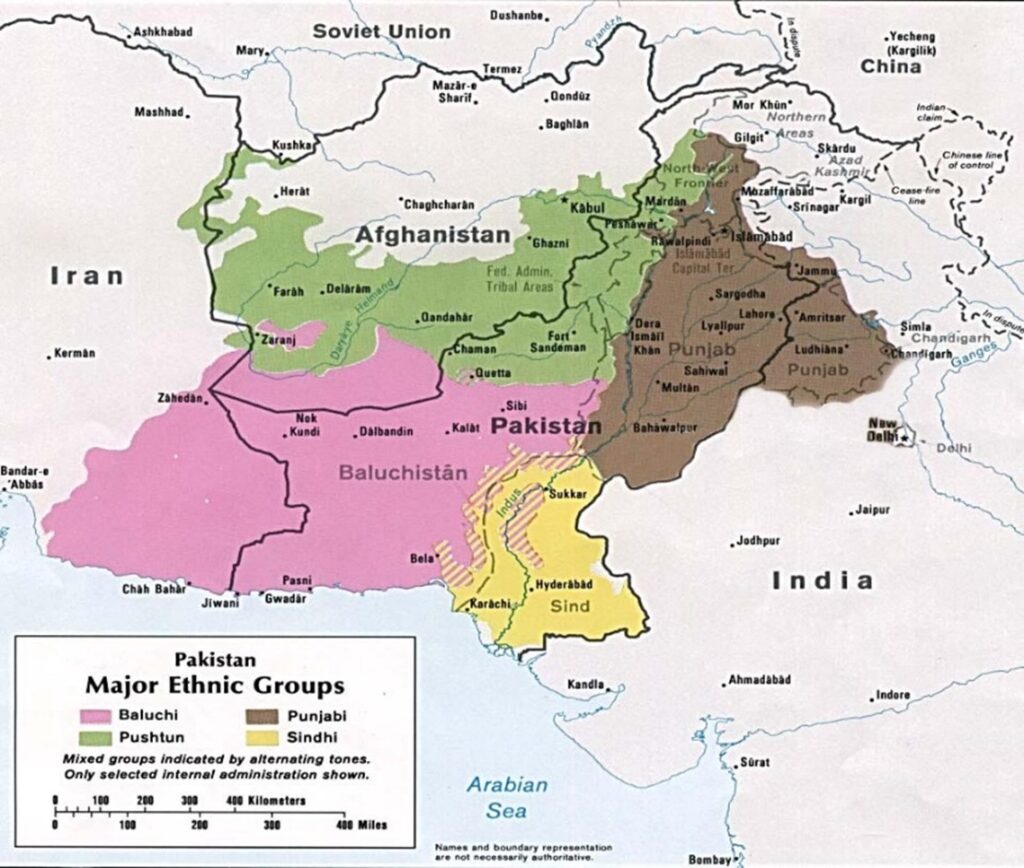
A Slow-Motion Genocide Of The Baluchi People
The fight for Balochistan’s independence began soon after the Pakistan army tanks rolled into the region. In 1948, prince Agha Abdul Kareem Baloch (Yar Khan’s younger brother) launched a resistance movement against Pakistan’s hegemony. He then migrated to Afghanistan, seeking aid to liberate Balochistan, but did not find international support against Pakistan’s aggression.
A slow-motion genocide of the Baloch people began then. Pakistan’s establishment miserably failed to respect international laws, as its army has been brutally suppressing and silencing the voices of indigenous Baloch people for over 70 years. Political parties and their activists are being prohibited from peacefully protesting, family members of Baloch activists are abducted, Baloch women are raped in army torture camps, and helicopter gunships and fighter jets bomb Baloch villages.

The Free Balochistan Movement, headed by Hyrbyair Marri, also stated that the Pakistani army has used “chemical and lethal weapons” against the unarmed Baloch population.[1]
In 2011, Rehman Malik, who was then Pakistan’s interior minister, threatened to “crush” the Baloch political parties and Baloch Students Organization, in a policy statement.[2] His statement was meant to glorify the unlawful practices of the Pakistani army and the ISI against the Baloch people.
In 2006, Pakistan’s former army chief General Musharraf also congratulated its army for its “victory.” after the killing of Baloch leader Nawab Akbar Khan Bugti, who served as minister of state for interior as well as governor of Pakistan’s Balochistan Province, and devoted his life to the Baloch cause.[3] Just a year earlier, speaking to a journalist, Bugti, who was open to negotiations, said: “How can negotiations on political issues continue with the government in this situation? A military operation and negotiations cannot continue side by side. If the authorities launch an operation, then with whom will they hold negotiations?”[4]

Pakistan Is Violating The Geneva Convention
The Pakistani army is clearly waging a war against the Baloch people, violating the standards of humane treatment and guarantees of respect to populations that are victims of armed conflicts, as set by the Geneva Convention.
The harrowing memory of when, in 2005, the Pakistani army under the leadership of General Pervez Musharaff used U.S.-made fighter jets to attack Baluch civilians in Kahan and adjoining areas of Dera Bugti, resulting in the killing of hundreds of unarmed civilians, remains vivid.
Furthermore, since 2009, the Pakistani army and its rogue Inter-Services Intelligence (ISI) adopted and intensified the policy of “Kill and Dump.” The first victim of this dirty policy were Baloch political leaders Ghulam Mohammad Baloch, Lala Muneer Baloch, and Sher Mohammad Baloch. They were abducted from their lawyers’ offices, and their bullet-ridden mutilated dead bodies were dumped in the Murghab area of the Surab area of Khuzdar district. Their dead bodies showed that before being shot at close range, they were severely tortured.
However, state-sponsored brutality against Balochs has characterized the Pakistani government since its independence. In particular, in the 1970s, during Zulfiqar Ali Bhutto’s regime, Marri Baloch prisoners were thrown from low altitude flying helicopters. Furthermore, Pakistan has been using “enforced disappearances tactics,” to terrorize the Baloch people. For example, in the 1970s, the Pakistani army abducted Asad Baloch, the eldest son of Sardar Ataullah Mengal, who was the first elected chief minister of the province of Balochistan. His body was never found.
Along the years, the Pakistani army abducted more than 30,000 Baloch civilians. These people cannot be called missing persons, because Baloch families know that their beloved ones are in the Pakistani army’s torture chambers.
According to independent Baloch sources, since 2005, more than 1,800 Balochs have been extra-judicially killed. Most of the victims were shot in the forehead after being brutally tortured. None of them ever appeared in front of any local courts. Furthermore, even when Baloch people are sentenced in court, they often do not understand the charges and the final judgments, because many of them do not speak Urdu and translations are not provided to them.
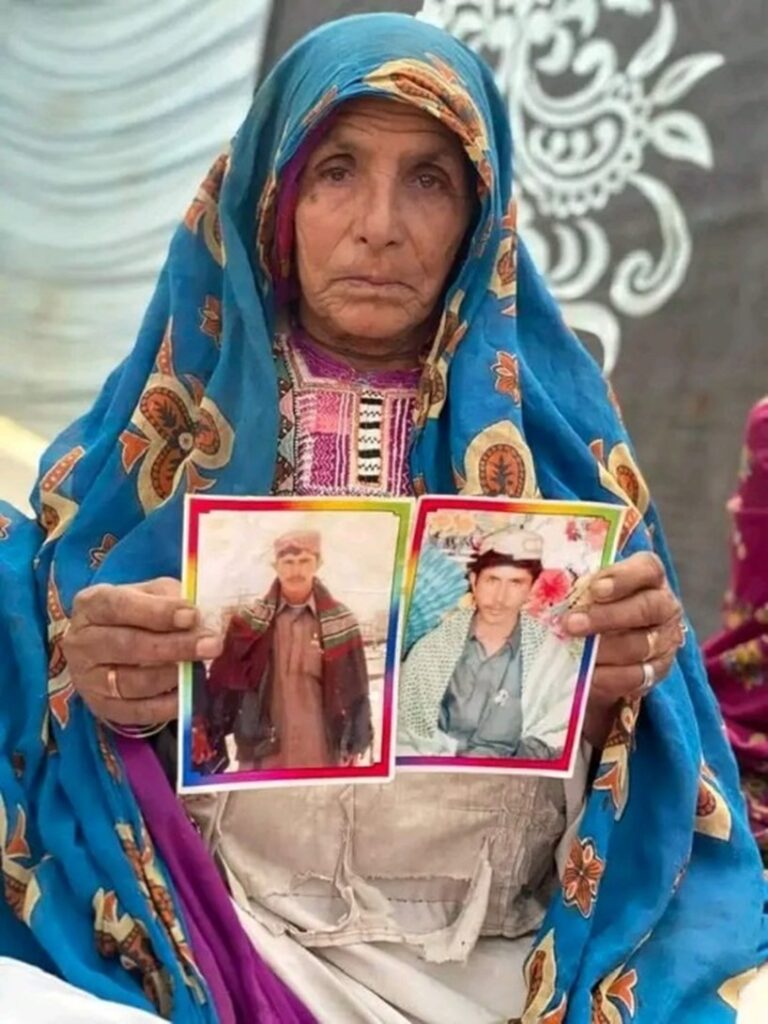
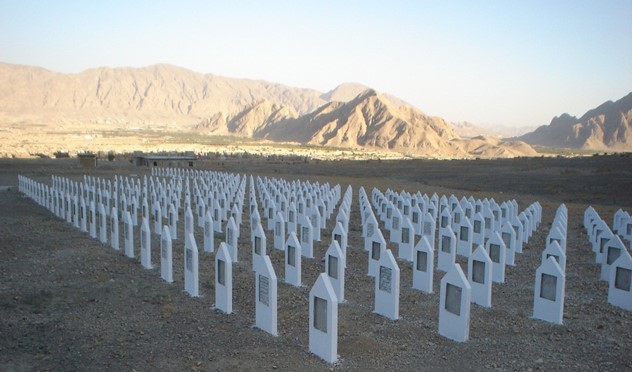
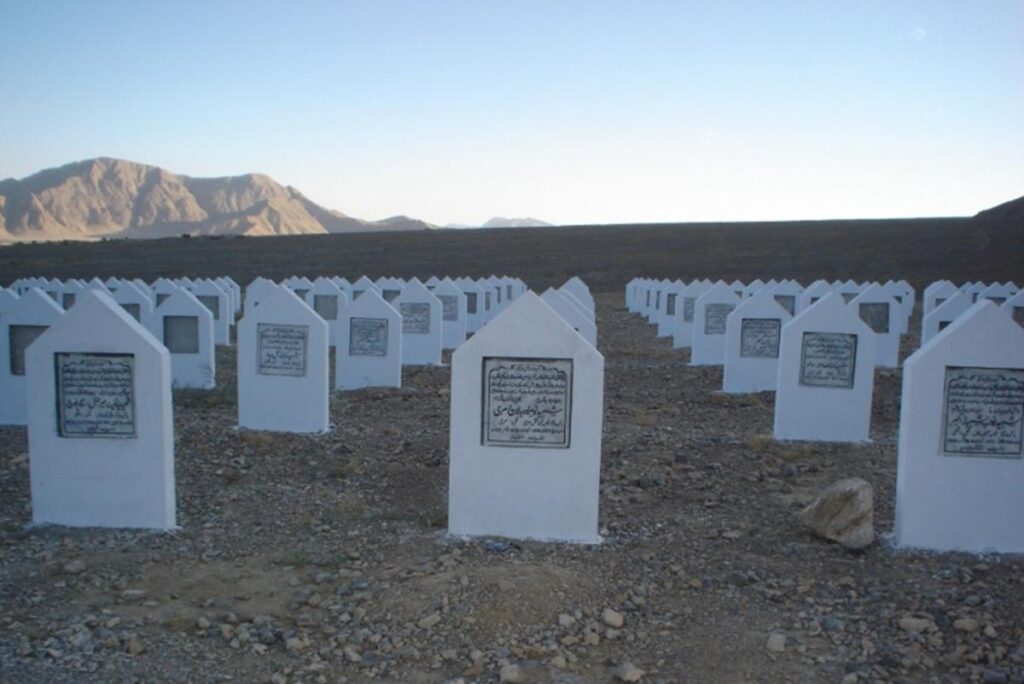
Pakistan Is Trying To Radicalize Baloch Youth
As a way to crush Baloch nationalism, Pakistan’s ISI is hugely investing in religiously radicalizing the Baloch youth. The ISI had formed some training camps in Khuzdar, Kalat, Mastung, Noshki, Lasbela, Jiwani, and Gawadar, where ISI generals along with local informers are approaching Baloch youth, giving them incentives and lucrative packages to join the jihad against India, the United States, and all the “anti-Pakistan forces.”
Pakistan uses religion as a lethal weapon against rival countries. However, Islamabad failed to quell the deep-rooted Baloch nationalist school of thought. Baloch patriotic parties are resisting the radical projects of the Pakistani army, but if the international community wants to defeat and uproot Pakistan-sponsored jihad and extremism, the secular and moderate Baloch movement should be empowered.
The struggle for a democratic, secular, and free Balochistan is not being fought by a specific clan, tribe, or group, it is rather a comprehensive battle, joined by Baloch people from every walk of life. In early 2000, Baloch leader Hyrbyair Marri and his brother Balach Marri invited all Baloch parties to join the freedom struggle, in a meeting held in the Dera Bugti’s Sui area. Brahumdagh Bugti, the grandson of Nawab Akhbar Khan Bugti, Ghulam Mohammad, founder of the Baloch National Movement who was abducted and killed in 2009, Balach Marri, who was killed in 2007, and other Baloch political leaders vowed to continue their struggle for Balochistan’s freedom.
Hyrbyair Marri’s policies against Pakistan’s and Iran’s occupation of Balochistan and against religious radicalization are overwhelmingly endorsed by ordinary Baloch citizens.
Pakistan Subletting Balochistan To China
Balochistan is a resource-rich region. The Geological Survey of Pakistan reported that Balochistan is home to the world’s most expensive metal, known as “molybdenum,” which costs $100,000 per ton and is used for making aircraft.[5] According to media reports, the Reko Diq Gold mines of Balochistan are valued at $260 billion and could be worth $1 trillion. Despite this mineral wealth, Pakistan keeps the Baloch people in extreme poverty, while subletting their land to China for Islamabad’s economic gain.
According to Hyrbyar Marri, the China-Pakistan Economic Corridor (CPEC) is a colonial project for the expansion of China’s military hegemony. “There are already reports that Chinese will outnumber the Balochs in Gwadar by 2048 whereas by 2023 they want to build a Chinese-only city to house 500,000 Chinese settlers in Gwadar. The CPEC is a corridor of death and destruction for the people of Balochistan, not a development project. Once China finds a foothold in Balochistan and constructs naval and military bases in Jiwani and Sonmiani, then it is not only a threat to the Baloch people but also a military threat to India, the United States, and Europe. Balochistan is located in a very important strategic region and if the Chinese get control of our country, then they will be able to project their military power in South Asia, the Middle East, and beyond,” Marri stated.
According to the Baloch leader, China is acting like a “foe of the Baloch people” by collaborating with Pakistan. “Pakistan and China jointly want to strengthen Punjabi colonization over Balochistan for their expansionist evil designs and economic benefits. As I mentioned, the so-called China-Pakistan Economic Corridor is not an economic or development project, it is a military project where China wants to have a presence in the Baloch Sea and control the trade routes to Central Asia… China and Pakistan are rogue states, they are criminals and occupiers, who want to eliminate our nation. Pakistan has always violated the laws of war and international conventions and targeted unarmed people, [including] women and children,” Marri declared.[6]
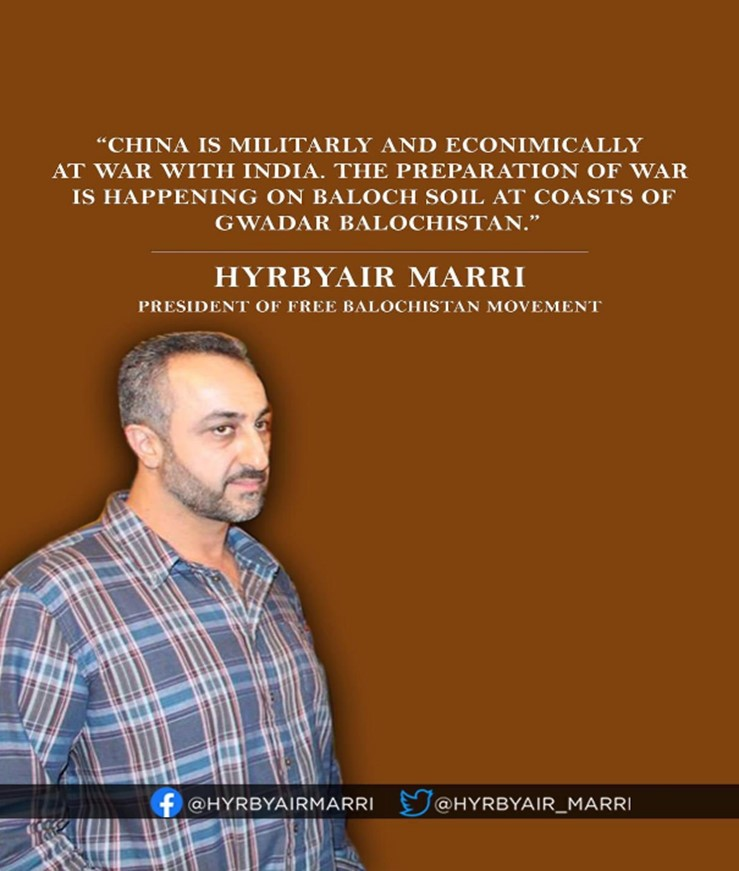
Conclusion
Baloch leaders, such as Hyrbyar Marri, stand against religious radicalization in the region, against dictatorial regimes of the Islamic Republics of Pakistan and Iran,[7] and against Chinese hegemonic ambitions. Hence, the international community should understand that Balochistan is a natural ally of the West.[8]
To empower the Baloch cause, it is high time to allow Baloch leaders to open representative offices in the United States, Europe, India, and Israel, and to invite them to speak at universities, think tanks, and international organization-sponsored events. Baloch people must be helped using suitable means, as their struggle for self-defense matches that of the West for democracy and freedom.
Rudam Azad is a Baloch writer, Baloch representative, and Human Rights activist. He can be reached on Twitter, @RudamAzad
